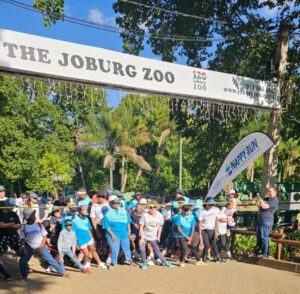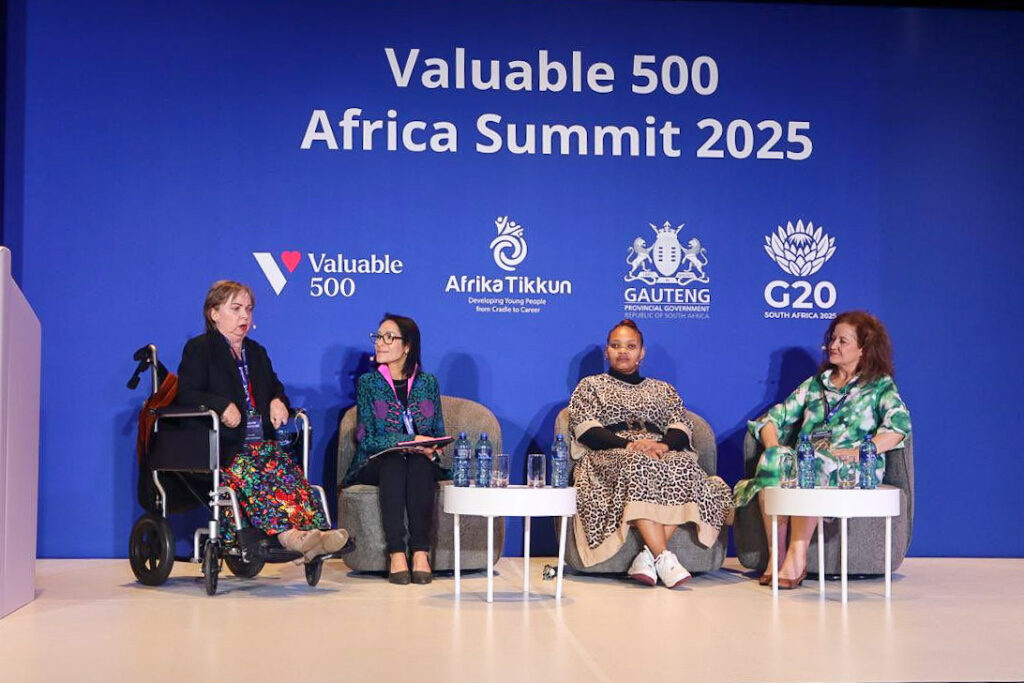
Conversations of Inclusion at the Valuable 500 Africa Summit
By Simon Manda
Afrika Tikkun proudly announces the resounding success of the inaugural Valuable 500 Africa Summit, held on the 9th September 2025 at The Houghton Hotel in Johannesburg. The landmark gathering brought together over 300 African business leaders, policymakers, and disability advocates in a defining moment for disability inclusion across the continent.
A Plea for Inclusive Excellence
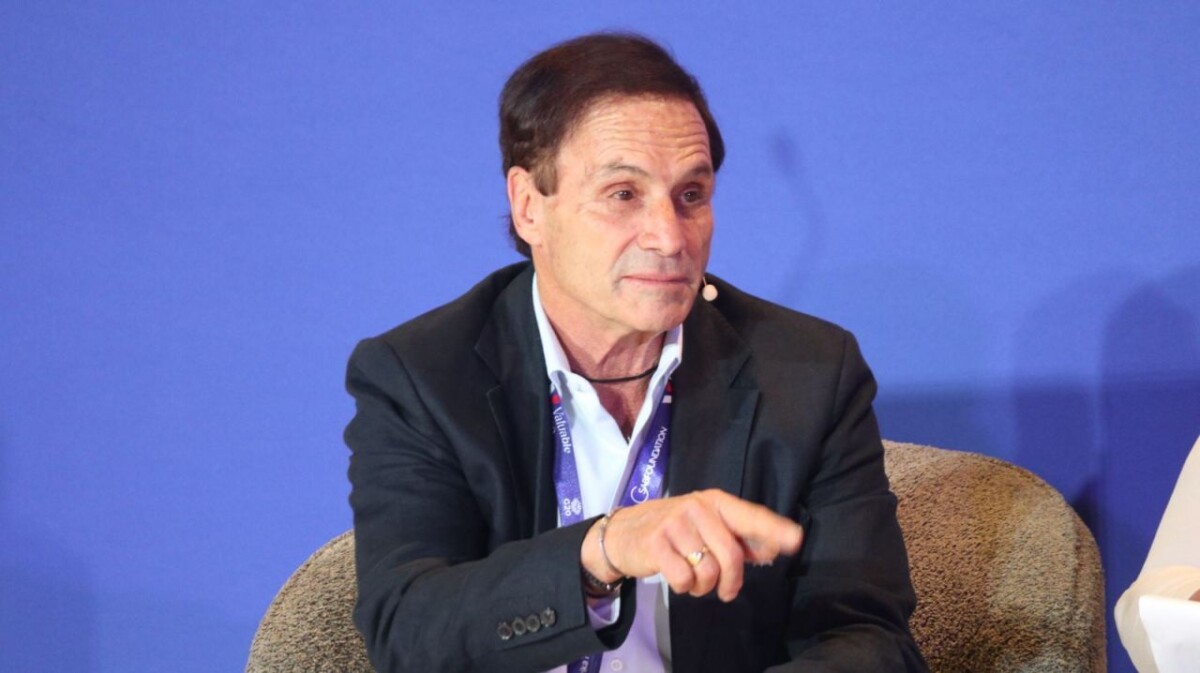
Marc Lubner, Group CEO of Afrika Tikkun, delivered powerful opening remarks that set the tone for the day’s transformative discussions. Drawing on the legacy of Nelson Mandela, who once declared at his treason trial, “I have fought against white domination, and I have fought against black domination. I have cherished the ideal of a democratic and free society in which all persons live together in harmony and with equal opportunities,” Lubner made an impassioned plea for inclusive action.
“By rights, I, a white male of Jewish faith, should not feel that I’m part of the South African inclusivity agenda. But to hell with it, I am. I choose,” Lubner declared. “I choose the Mandela philosophy and policy of inclusivity that says this is a country that has been sensitised by a history that is painful.”
Lubner challenged the audience to reconsider what makes communities thrive, referencing Malcolm Gladwell’s latest book, Revenge of the Tipping Point, which suggests that meaningful change doesn’t require a revolution—it requires reaching a critical mass. “That magical number is about 25% of a board, of a company, 25% of a population, suddenly become acknowledged, accepted, and all of a sudden the floodgates are open,” Lubner explained, pointing to how 60 of the Fortune 500 companies in the United States, including IBM, Microsoft, and Google, are now run by Southeast Asian CEOs—a dramatic shift from two decades ago when such appointments made headlines.
Drawing on scientific examples, Lubner illustrated the dangers of monoculture, from the tragic suicides in Popular Grove to the vulnerability of cheetahs to coronavirus due to their identical DNA. “A culture, a monoculture, which did not look at diversity, genetic diversity, started to fail,” he noted, emphasising how organisations that fail to embrace diversity ultimately undermine their own resilience and innovation.
Quoting Viktor Frankl, Lubner reminded the audience that “human beings are always directed to something or someone other than oneself. To fulfil a cause, to serve a purpose, is to effectively transcend self.” He concluded with a rallying cry: “Ladies and gentlemen, it’s up to us. A citizen-led initiative like this is going to bring about the country that we want. I’m extending an invitation to all parties, to international parties, and to everybody who’s chosen to be part of the South African movement.”
Global Leadership Voices Unite for Change
The Valuable 500 Africa Summit featured compelling addresses from global business icons. Paul Polman, Chair of the Valuable 500 Advisory Board and former CEO of Unilever, challenged corporate leaders to move beyond tokenism. “Real inclusion means persons with disabilities are included in decision-making roles. They are not token hires but genuine voices, shaping strategy and innovation,” Polman stated. He emphasised that companies embracing diversity “access new markets, start breakthrough innovations, win the war for talent and create energy in organisations that are unparalleled.”
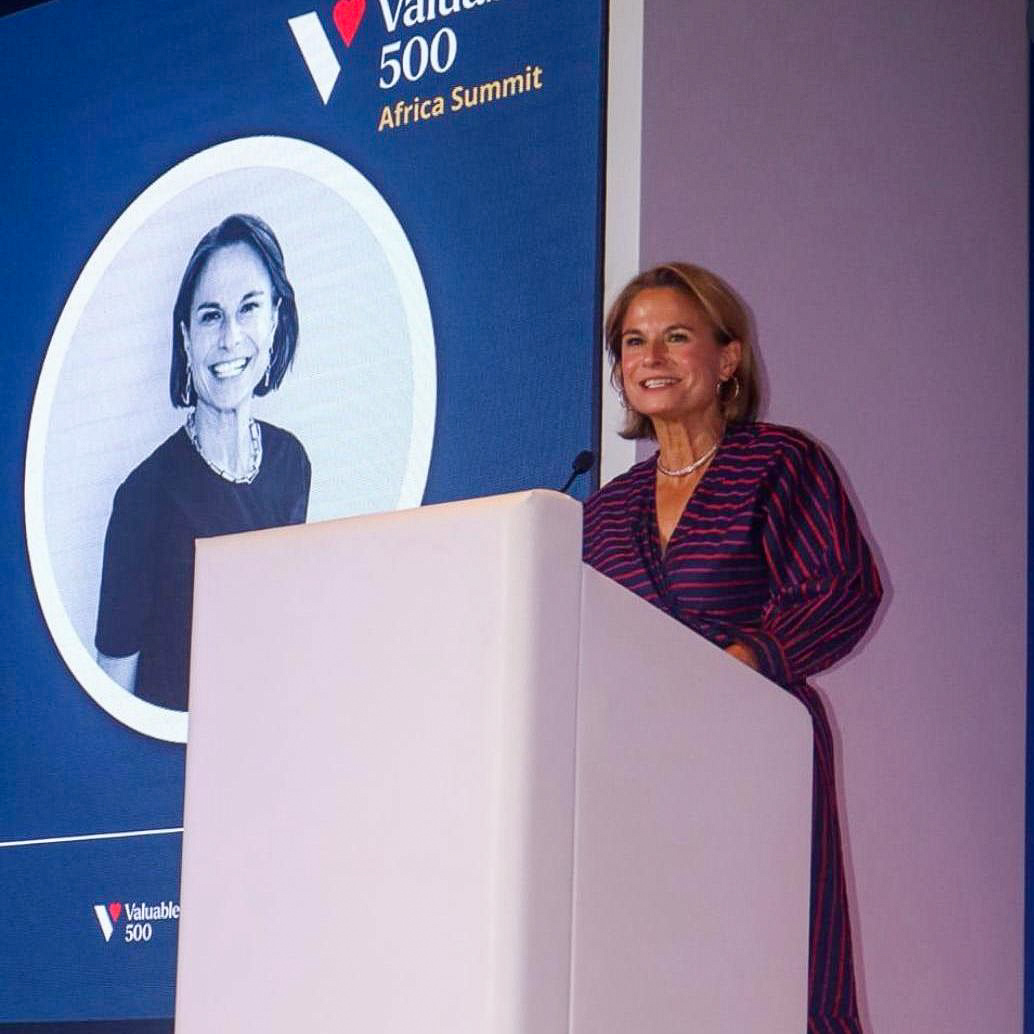
Katy Talikowska, CEO of the Valuable 500, underscored the historic significance of the gathering. “The first Valuable 500 Africa Summit is a defining moment—a chance to reimagine how business can lead on disability inclusion across an entire continent,” she declared. “With approximately 80 million persons with disabilities, this is not a marginal group—this untapped potential represents enormous talent to drive companies and strengthen communities.”
Unlocking a $13 Trillion Market Opportunity
The Valuable 500 Africa Summit highlighted compelling evidence for the business case for disability inclusion. Research shows that authentic inclusion unlocks access to the $13 trillion global disability market, whilst persons with disabilities control $18.3 trillion in annual spending power worldwide. In Africa alone, where persons with disabilities make up as much as 20% of the population in some countries, the untapped economic potential is extraordinary.
Evidence presented revealed that member companies of the Valuable 500 consistently outperform their peers in revenue generation, with diverse teams including persons with disabilities driving breakthrough innovations. The talent advantage is equally compelling, as companies gain access to overlooked talent pools with exceptional skills and perspectives.
Three Pillars for Transformation
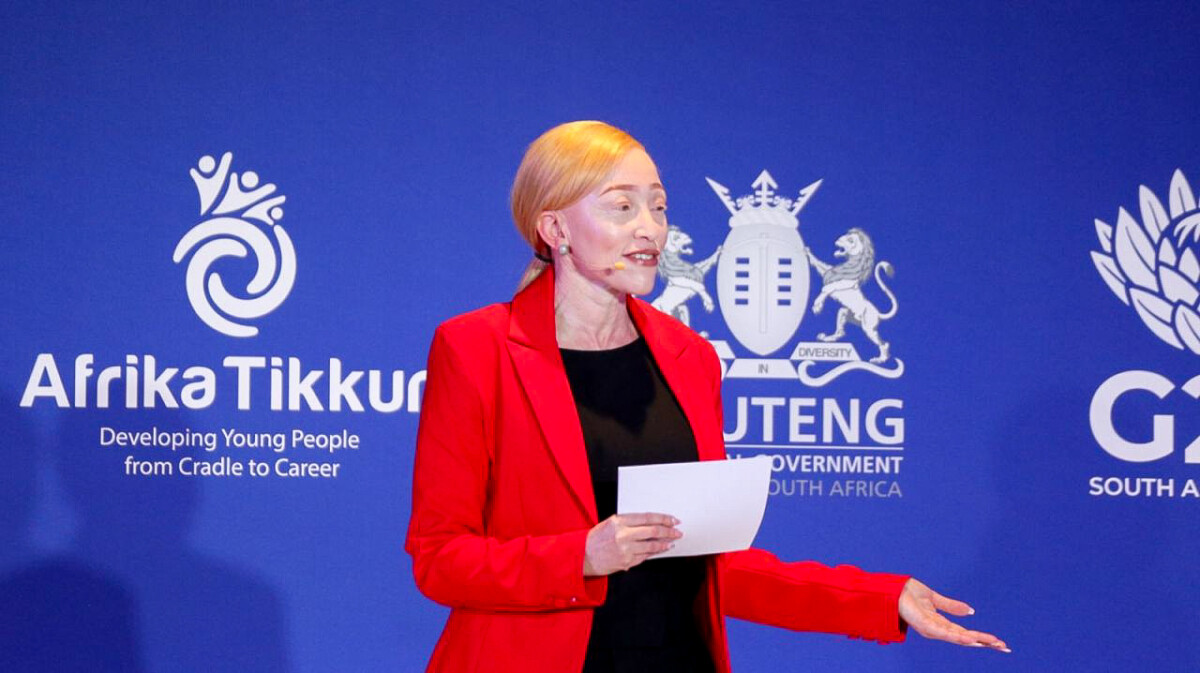
Expertly facilitated by master of ceremonies Palesa Moesia, the Valuable 500 Africa Summit’s plenary sessions explored three critical pillars for advancing disability inclusion across Africa:
Leadership: Corporate and government leaders committed to putting disability inclusion on the leadership agenda, moving beyond compliance to genuine strategic integration. Discussions centred on how CEOs and boards can champion disability inclusion as a business imperative.
Reporting: Delegates addressed the urgent need to tackle the disability data gap to create business accountability. Without robust metrics and transparent reporting, progress remains invisible and unaccountable.
Representation: The Valuable 500 Africa Summit challenged businesses to ensure authentic representation of persons with disabilities across all levels—from the boardroom to the shop floor—and in media representation.
A Continental Movement Takes Root
The Valuable 500 Africa Summit marks a pivotal shift in how African businesses approach disability inclusion. Positioned as a precursor to the G20 later this year, the gathering aims to present a united African voice on global stages regarding economic inclusion and social equity.
Lana Roy, Programme Lead of 360: Disability Inclusion at Afrika Tikkun, noted the Valuable 500 Africa Summit’s significance: “Valuable 500 was founded on the belief that no society can truly prosper if it leaves a fifth of its people behind.”
With Africa’s youngest population (60% under 25), fastest-growing economies, and most dynamic entrepreneurial ecosystems, the continent is uniquely positioned to lead the next wave of inclusive innovation. The Valuable 500 Africa Summit’s outcomes will inform localised frameworks for South African business, create sustainable partnerships for continental transformation, and inspire immediate action through shared success stories.
Afrika Tikkun extends gratitude to its partners: the Valuable 500, the Gauteng Provincial Government, the SA Breweries Foundation, and the Mail and Guardian, whose support made this historic Valuable 500 Africa Summit possible.
As organisations commit to the ambitious goal of employing at least 3% of persons with disabilities and providing comprehensive sensitisation training, the Valuable 500 Africa Summit has catalysed a movement that promises to reshape Africa’s business landscape for generations to come.

